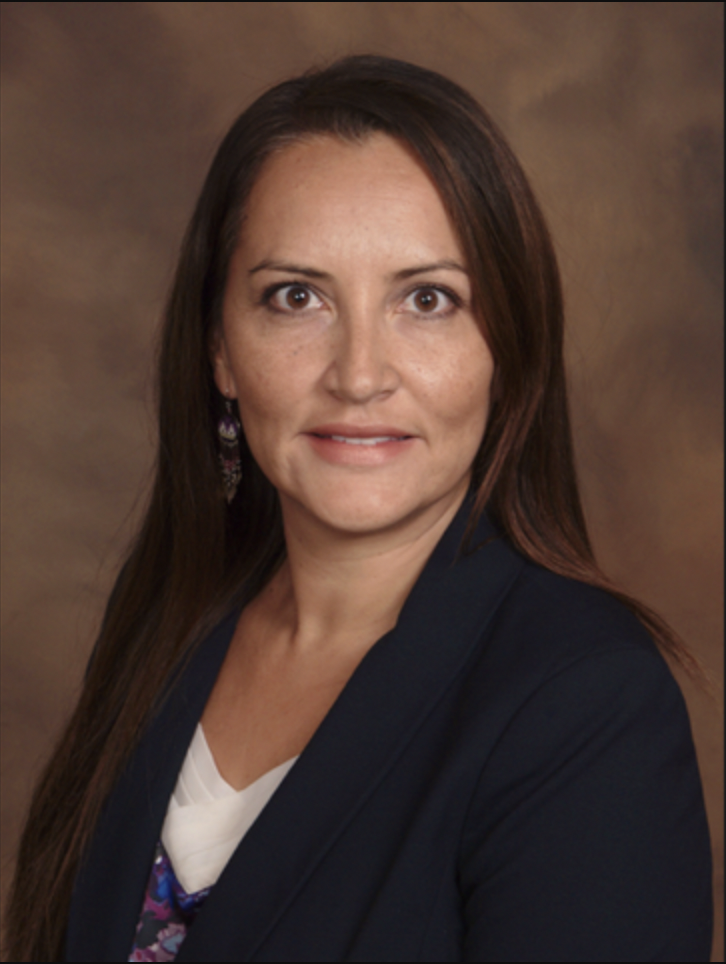President Joe Biden has announced 9 new federal judicial nominees, one of whom is a citizen of Navajo Nation.

Judge Sunshine Suzanne Sykes would be the first Native American Article III judge in California, the first Article III judge from the Navajo Nation, and the fifth Native American Article III judge actively serving in the United States. She is nominated for the United States District Court for the Central District of California.
Want more Native News? Get the free daily newsletter today.
Judge Sykes has served as a California Superior Court Judge on the Superior Court of Riverside County since 2013. She currently presides over a civil litigation department and is the presiding judge of the appellate division.
Judge Sykes received her J.D. from Stanford Law School in 2001 and her B.A from Stanford University in 1997. From 2001 to 2003, she was a staff attorney for California Indian Legal Services. From 2003 to 2005, Judge Sykes worked as a contract attorney for the Juvenile Defense Panel at the Southwest Justice Center. From 2005 to 2013, she served as a Deputy County Counsel in the Office of County Counsel for Riverside County, handling litigation on behalf of government entities and serving as a juvenile dependency trial attorney representing the California Department of Public Social Services on matters concerning abused and neglected children.
The National Congress of American Indians, based in Washington, D.C., was quick to praise President Biden's choice of Sykes.
“NCAI strongly supports President Biden’s nomination of Sunshine Suzanne Sykes, a citizen of the Navajo Nation and descendant of the Coyote Pass-Jemez Clan, to be the first-ever Native American judge to sit on the federal bench in the state of California,” National Congress of American Indians President Fawn Sharp said. “As the third Native woman in history to be nominated as a federal judge, Judge Sykes will bring unparalleled experience in law and policy to our justice system. NCAI urges the swift confirmation of Judge Sykes as the nomination moves before the U.S. Senate.”
The Native American Rights Fund (NARF) agreed.
NARF's Executive Director John Echohawk reacted to Wednesday’s news by saying, “Judge Sykes possesses excellent qualifications to be a federal judge. She has extensive judicial experience and a strong record of public service. We applaud her nomination and urge her confirmation. She will be a strong addition to the federal judiciary in California.”
NARF and NCAI have long advocated for increasing Native representation in the federal court system. It is imperative to have federal judges who understand the unique relationship between the United States and tribal nations and who reflect a more diverse swath of the districts that they serve.
More Stories Like This
Native News Weekly (August 25, 2024): D.C. BriefsUS Presidents in Their Own Words Concerning American Indians
Two West Virginia Guardsmen Shot Near White House
Next on Native Bidaské: Chef Sean Sherman Talks “Turtle Island” and the Future of Indigenous Food
Deer Camp: A Family Tradition That Runs Deep
Help us tell the stories that could save Native languages and food traditions
At a critical moment for Indian Country, Native News Online is embarking on our most ambitious reporting project yet: "Cultivating Culture," a three-year investigation into two forces shaping Native community survival—food sovereignty and language revitalization.
The devastating impact of COVID-19 accelerated the loss of Native elders and with them, irreplaceable cultural knowledge. Yet across tribal communities, innovative leaders are fighting back, reclaiming traditional food systems and breathing new life into Native languages. These aren't just cultural preservation efforts—they're powerful pathways to community health, healing, and resilience.
Our dedicated reporting team will spend three years documenting these stories through on-the-ground reporting in 18 tribal communities, producing over 200 in-depth stories, 18 podcast episodes, and multimedia content that amplifies Indigenous voices. We'll show policymakers, funders, and allies how cultural restoration directly impacts physical and mental wellness while celebrating successful models of sovereignty and self-determination.
This isn't corporate media parachuting into Indian Country for a quick story. This is sustained, relationship-based journalism by Native reporters who understand these communities. It's "Warrior Journalism"—fearless reporting that serves the 5.5 million readers who depend on us for news that mainstream media often ignores.
We need your help right now. While we've secured partial funding, we're still $450,000 short of our three-year budget. Our immediate goal is $25,000 this month to keep this critical work moving forward—funding reporter salaries, travel to remote communities, photography, and the deep reporting these stories deserve.
Every dollar directly supports Indigenous journalists telling Indigenous stories. Whether it's $5 or $50, your contribution ensures these vital narratives of resilience, innovation, and hope don't disappear into silence.
 The stakes couldn't be higher. Native languages are being lost at an alarming rate. Food insecurity plagues many tribal communities. But solutions are emerging, and these stories need to be told.
The stakes couldn't be higher. Native languages are being lost at an alarming rate. Food insecurity plagues many tribal communities. But solutions are emerging, and these stories need to be told.
Support independent Native journalism. Fund the stories that matter.
Levi Rickert (Potawatomi), Editor & Publisher

